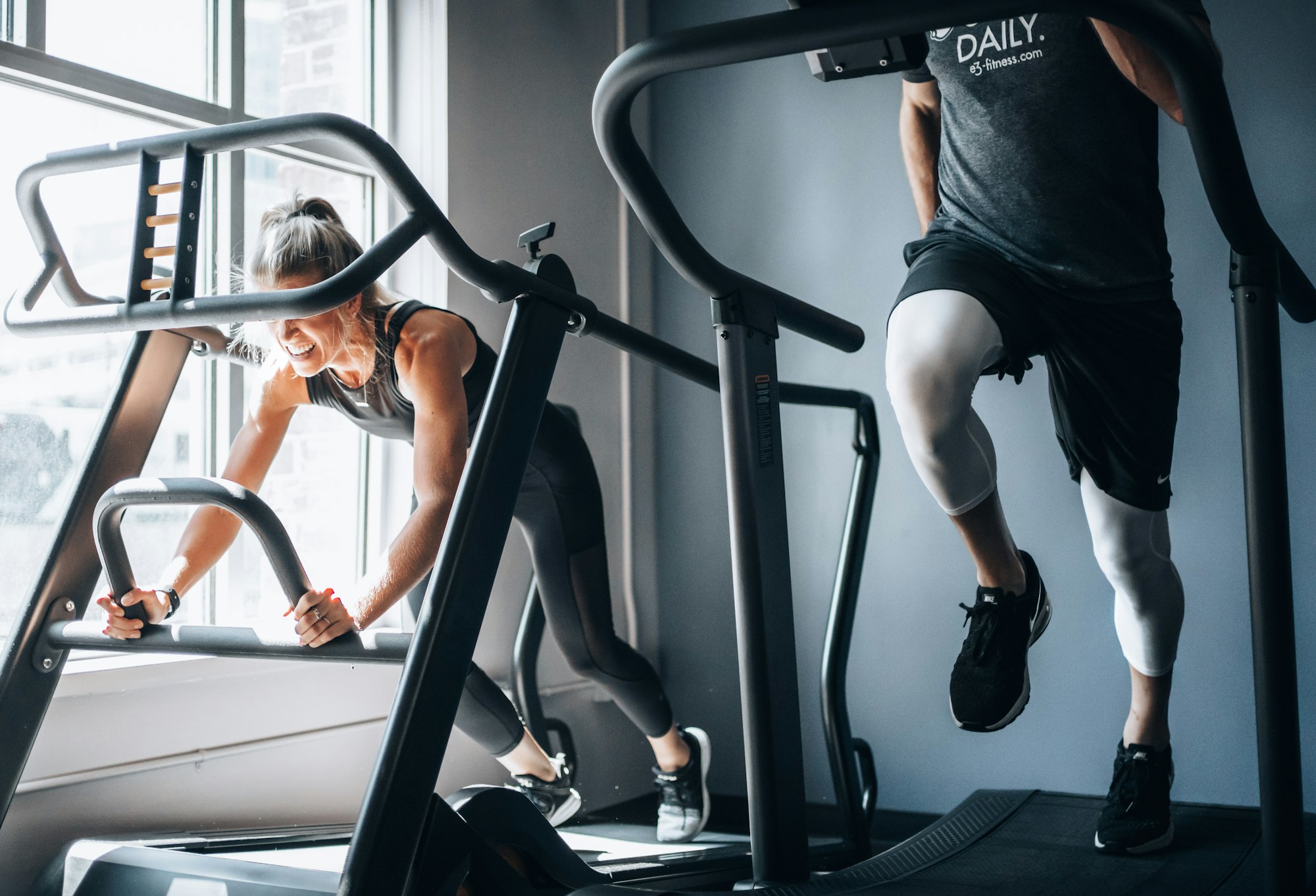Revolutionizing Fitness: AI-Powered Personal Trainers
AI personal trainers offer customized workouts and instant feedback, revolutionizing the fitness industry. The AI health & wellness market is projected to hit $35.6 billion by 2030.

In the era of New Year resolutions focused on fitness, the traditional gym model faces a challenge from an emerging trend - AI-powered personal trainers. This makes the fitness industry one more skirmish line on the tug-of-war currently taking place between tech’s latest innovation and humans who are either annoyed or awestruck.
The same divide has been playing out in every career space that AI enters. The response is divided along the now familiar lines every time. AI is either going to improve the way that we drive, write, work, eat, and yes. the way we work out, too, or AI is going to be used to replace humans to the detriment of us all.
So which side is correct? We still don’t know. A recent BBC discussion with several top fitness influencers was a mixed bag. There were compelling arguments in favor of AI-powered work courts and there were equally compelling warnings of potential risk.
The Magic Mirror: A Personalized Fitness Revolution
It is hard to argue with the value that AI fitness training has provided for Magic AI CEO Varun Bhanot. After being ordered to lose weight by his doctor, and feeling intimidated and uncomfortable at the gym, Mr Bhanot had an epiphany. What if AI could be used as a personal trainer, allowing people to work out at home away from the judging eyes of the uber-fit?
That was the beginning of Magic Mirror, a two-way mirror equipped with a video display and cameras. The user provides their physical specs and the goal they are aiming for and the AI creates a personalized workout plan. AI uses the cameras in the Masgic Mirrore to evaluate and correct your form just like a human personal trainer.
The Soaring Rise of AI in Fitness
Bhanot was not the only one inspired by AI. The 2022 AI health & wellness market had an estimated value of $7.8 billion, and experts predict that Projections indicate this value will skyrocket to $35.6 billion by 2030.
Beyond Solitary Pursuits: AI in Group Fitness
While many AI fitness apps cater to solitary pursuits, the emergence of Lumin Fitness in Dallas, Texas, signals a new frontier. In this groundbreaking gym, AI personal trainers guide groups through personalized workouts. LED screens and sensors monitor each participant, providing real-time feedback via headphones. Lumin Fitness demonstrates that AI isn't here to replace human trainers but to enhance their capabilities, fostering a sense of community even in a digitized space.
That is where the other side of the debate comes in. While few dispute the impressive ability of the latest AI models to provide nearly-human interaction, there are concerns about what we are sacrificing if we exchange nearly-human for authentic humans.
Bridging the Divide: AI vs. Human Interaction
The debate on AI's ability to replicate the motivation derived from human interaction is ongoing. Pilates teacher and physiotherapist Esther Fox emphasizes the irreplaceable human connection in the fitness journey. Emotional intelligence, she argues, plays a pivotal role, asserting that "there's a lot of emotional intelligence that goes into health and fitness that you just can't replace with AI."
Another expert on the panel echoed this sentiment and expressed concern about the potential for overtraining and injury if AI gets overzealous with the exercise instructions.
Don’t Ditch the Humans Just Yet
A similar conversation, taking place in another prestigious newsroom reached the same consensus.
MIT Technology Review reporter Rhiannon Williams, went all in, asking ChatGPT to write a 16-week training program to help her prepare for an upcoming marathon. So, how did AI do?
Not great….Rhiannon shared the classic method of training for a marathon is a gradual step-up running routine that moves you from your current running routine to daily runs of 20 miles maximum well before marathon day. ChatGPT suggested a routine that had her running roughly 10 miles a day. That was a recipe for injury or worse on marathon day, so she gave it a second chance. This time, ChatGPT directed her to run 19 miles the day before the marathon. Both answers were a quick route to a serious injury, according to seasoned runner Rhiannon.
The Verdict for Now: Cautious Optimism
Rhiannon went straight to OpenAI customer support to find out why ChatGPT gave her such different answers to the same question and why it gave her harmful advice.
“It’s important to remind readers that ChatGPT is a research preview— and we let people know up front that it may occasionally generate incorrect information and may also occasionally produce harmful instructions or biased content.”
TikTok is full of users exploring the possibilities of AI fitness. No reported injury yet, but the common thread seemed to be the boring repetitive nature of the routines created by AI.
From BBC, MIT, and TikTok, the final verdict on AI personal trainers seems to be cautious optimism. There is clear value to be found. The Magic Mirror is a great idea. The marathon coach? Stick with the humans for that one.